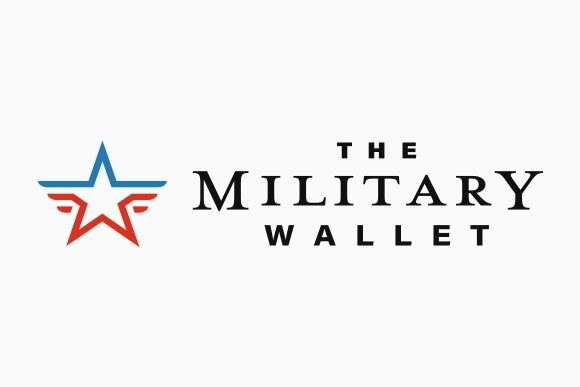Financial experts agree that everyone should save for retirement – Social Security and pension plans probably won’t provide enough money to sustain your current standard of living during your retirement years, so it is up to you to provide the difference. The two most popular retirement investing tools are the 401k (and similar employer-sponsored retirement plans such as the 403b and Thrift Savings Plan), and the Individual Retirement Arrangement, or IRA.
Maxing Out Your 401k and IRA
The tax incentives offered by TSP plans and IRAs allow investors to defer or avoid paying taxes on their retirement income, making these powerful retirement planning tools. These tax breaks are also why most financial experts advise people to use tax-advantaged retirement programs such as a Roth IRA, 401k, 403b, SEP IRA, etc., when investing for retirement.
Create a plan to max out your retirement investments. If your employer offers matching contributions to your 401k plan, then it is usually best to contribute enough to your 401k plan to get the matching employer contribution. Then work toward maxing out your Roth IRA. (Compare Roth and Traditional IRAs to see which is best for your needs). If you still have enough money left after maxing out your Roth IRA, contribute toward your 401k plan until you can max it out.
But where do you invest once you max out both your 401k and your IRA?
Retirement Investing After Maxing Out 401k and IRA
Maxing out your 401k plan and IRA is a great achievement and will provide most people with a sizable nest egg for retirement. But some people may wish to continue their retirement investing after maxing out these plans. Here are some tips if you find yourself in this position.
Reevaluate your financial plan. The first step is to reevaluate your investing and retirement needs. Do you have any other pressing financial needs? Do you have any non-mortgage debt? Are you saving for college, planning on buying a new home shortly, or saving for any other long-term goals? If the answer is yes to any of these questions, you may wish to use your additional funds elsewhere since it is usually a good idea to avoid taking on new debt.
Evaluate your retirement investment strategies. Next, determine if you need to save above and beyond a 401k and IRA. If you decide that maxing out your 401k and IRA should provide enough money for you in retirement, then you are done and can use your money for other needs. But if you determine you need more money than your 401k and IRA investments will provide, consider some of these options.
Invest in Taxable Investments
A taxable investment is simply an investment that isn’t sheltered in a retirement account or other vehicle that provides tax advantages. You can invest in the same types of investments, but you won’t enjoy the ability to defer or avoid paying taxes when you cash them in. On the flip side, you have more flexibility regarding when you can use the funds since you don’t have to worry about early withdrawal penalties.
What you do need to consider, however, is the tax implications of these types of investments since they don’t have the same tax advantages as 401k plans and IRAs. Because of this, you may wish to employ more of a buy and hold strategy (long-term capital gains are currently set at 15%), or utilize index funds, ETFs, or tax-efficient mutual funds. These investment strategies can help you grow your nest egg and minimize taxes. Check out these online brokerage firms for some good places to invest outside of traditional retirement plans.
Invest in Bond Funds or Tax-Free Municipal Bonds
Bond funds can expose your portfolio to a different type of investment without taking on as much perceived risk as investing directly in the stock market. Many bond funds feature some tax advantages over stocks and similar investments. Tax-free municipal bonds offer another way to invest in fixed securities with added tax advantages.
Invest in Real Estate
Real estate investments can provide a steady income stream and may provide additional long-term tax advantages, such as using a 1031 tax exchange when you buy and sell your properties. Real estate isn’t without its risks, but it also provides different benefits as it generally brings in cash flow in addition to the equity in your property.
Do you have other recommendations for investing after maxing out retirement plans?




Comments:
About the comments on this site:
These responses are not provided or commissioned by the bank advertiser. Responses have not been reviewed, approved or otherwise endorsed by the bank advertiser. It is not the bank advertiser’s responsibility to ensure all posts and/or questions are answered.
Greg L says
One question I can’t seem to find an answer to. If you can max out your 401k, but are above the income limits to contribute to a Roth IRA, should you put after tax money into a traditional IRA? Or only taxable brokerage accounts at that point?
DG says
I disagree with your advice. Assuming Jennifer’s mortgage rate is low, it makes no sense to use funds that are currently earning a much higher rate to pay it off. Plus, mortgage interest is tax deductible. Since their tax sheltered investments are maxed out and they are plenty of emergency savings, “risk” isn’t much of an issue anyway. Also, if they invest that extra cash after tax, it’ll be accessible (penalty free) if needed, further mitigating any possible risk.
Stonewall says
Jennifer, in your situation, I would pay off ALL remaining debt before investing further. Pay off that house. Why do you ask? Look at it this way. Let’s assume you have $50,000 remaining on your mortgage. If you pay that off early, then you have reduced your risk. You wouldn’t want to begin investing further with the mortgage hanging on your back. Look at it again another way. If your house was paid off, would you borrow $50,000 against it to invest? The answer, of course, is NO. Therefore, pay off your house (and any other debts you have)..then invest. Don’t forget to “give” more than ever too!
steve says
I will be retiring at the end of next month and required to withdraw my 401K at that time unless I leave it in for another full year without any access to it that does not involve heavy penalties. Everything I have is paid for. I have no debt at all. I have a small farm with a few head of livestock but nothing special. I would like to be able to invest my 401K into starting up a Hot-Shot trucking business as a partnership with 2 other family members. This business would require the purchase of vehicle’s and some equipment. Is there a way to use my 401K for this and minimize my tax exposure.
Thanks, Steve
Ryan Guina says
Steve, I would talk to a financial planner or tax professional about this. There may be a way that you can roll your 401k into an IRA, which would give you more flexibility in how you can invest your retirement funds. If you have a self-directed IRA, you may be able to invest those funds into a business. Again, there would be paperwork involved and you want to ensure you do everything correctly. So retaining the advice of a financial planner or tax pro is essential here. Best of luck in your retirement and with your business!